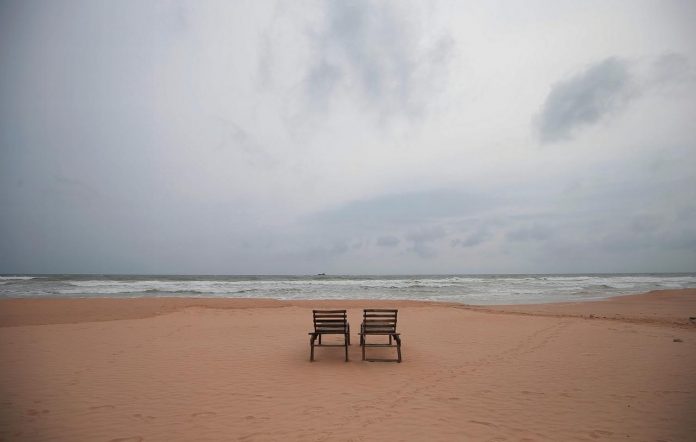Sri Lanka’s battered tourism industry is trying to woo visitors back to beaches deserted after deadly Easter bombings, slashing hotel rates and pushing promotions in key markets like Russia.
Tourism, which accounts for 5% of Sri Lanka’s gross domestic product, tanked after Islamist bombers on April 21 attacked luxury hotels and churches, killing 250 people, including 40 foreigners.
England, India and the United States were among countries that issued travel advisories for Sri Lanka, a diverse island with pristine beaches, ancient Buddhist temples, and lush hills that Lonely Planet selected as its top 2019 destination.
Those advisories contributed to a flood of cancellations and a drop in bookings just as the monsoon-dominated low season was beginning.
To lure tourists back, Sri Lanka is hosting international sporting events and has mothballed a rule on minimum rates for hotel stays. State-owned SriLankan Airlines is offering special fares and pushing joint promotions with the government’s tourism board. Some hotels are waiving corkage fees on day trips, while tour groups are offering free airport pickups.
Lavanga Resort & Spa in the southern beach resort of Hikkaduwa, for example, is offering rooms for $35 instead of the usual $75 – with free breakfast. Travel agents are promoting the offer in Russia, with some success.
“We have offered rock bottom rates for foreigners. We are getting bookings for the winter season,” said Lavanga’s managing director, Anusha Frydman.
Reservations for the next few months remain tepid, however, with occupancy around 10% versus 30% last year.
But some tourists are lapping up a dream vacation on the cheap.
“I secured a six-night stay in a plush southern hotel for $200 which included complimentary ayurvedic treatment,” said 52 year-old Leif Ohlson from Sweden.
Data suggests more and more foreigners are emulating him.
A daily average of 1,400 to 1,500 foreign visitors are currently in Sri Lanka, up from 1,000 recorded immediately after the attacks, said Kishu Gomes, the head of the Tourism Bureau.
That is still down from around 4,500 last year, but with countries including India and China lifting their travel advisories, officials are optimistic.
“We are expecting the recovery to commence. It is too early to say how fast and to what level it will be,” Gomes said.
A rebound could not come fast enough, however, especially for smaller hotels.
“Lots of hotels have curtailed operations and shut down wings. They may have reduced or laid off (staff),” said Sanath Ukwatta, the president of the Hotels Association of Sri Lanka. He said he did not have any immediate data, however.






